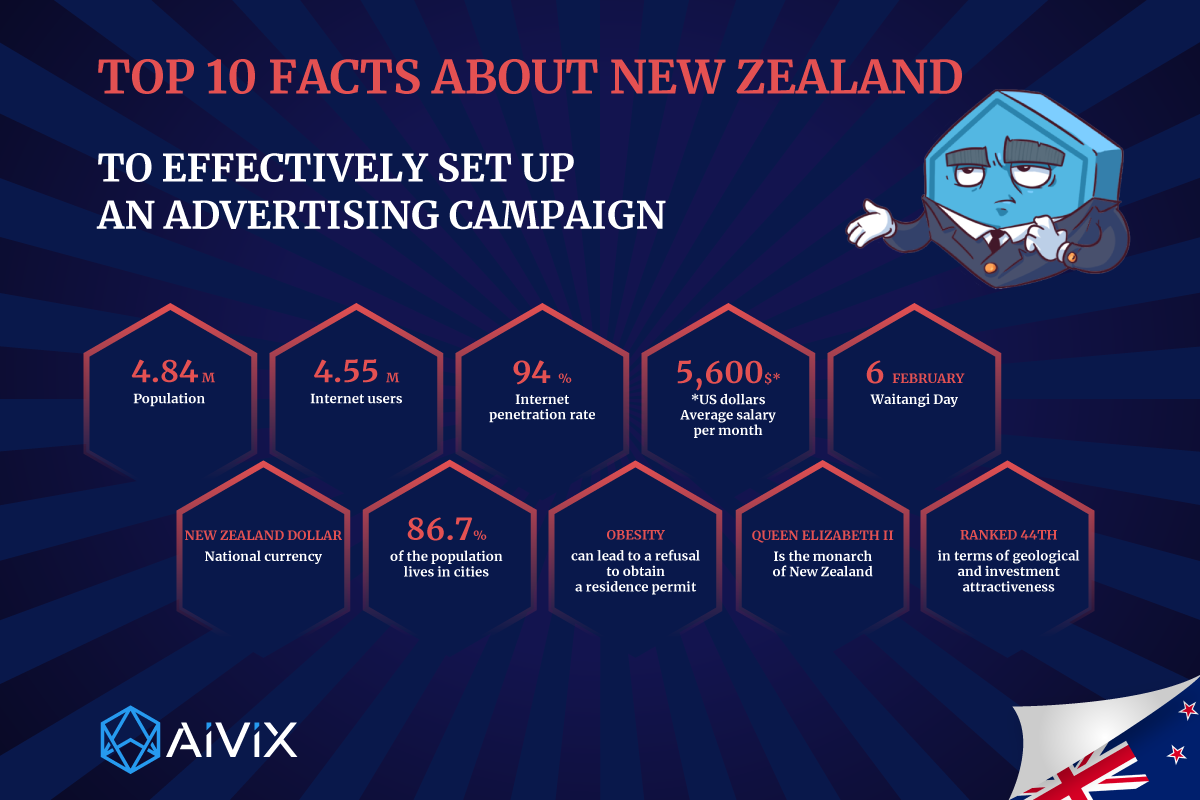
CONTENTS
1. Geography and population of New Zealand
2. Official language of New Zealand
3. Currency in New Zealand
4. Internet in New Zealand
5. Economic Development in New Zealand
6. Job in New Zealand
7. Working days and holidays in New Zealand
8. Resident’s mentality of New Zealand
9. Advertising in New Zealand
10. Cryptocurrency in New Zealand
1. Geography and population of New Zealand
New Zealand, Maori Aotearoa, an island state in the southern part of the Pacific Ocean, the southwestern part of Polynesia. New Zealand is a country of large contrasts and diversity. Here you will find the active volcanoes, impressive caves, deep glacial lakes, green valleys, dazzling fjords, long sandy beaches, and snow-covered vertices of the southern Alps. Despite the remoteness of New Zealand from around the world, the country is fully involved in international affairs since the beginning of the 20th century, being an active member of a number of intergovernmental institutions.
General information about New Zealand:
- Capital: Wellington
- Area: 268,021 km²
- Phone code: +64
- Top-level domain: .nz
- Population: 4.84 million
.png)
Population of New Zealand:
Most people of European origin live in modern New Zealand, a significant minority of Maori and a smaller number of people from the Pacific Islands and Asia. At the beginning of the 21st century, Asians were the fastest growing demographic group. Europeans began to settle in New Zealand in the 1820s. Their number increased after the country was annexed by the United Kingdom after signing the Vaitangiu Treaty in 1840. By the end of the 1850s, the number of settlers exceeded the number of Maori, and in 1900 there were about 772,000 Europeans, most of which were natives of New Zealand.
Big cities/ number of residents:
| Auckland | 417,910 |
| Wellington | 431,400 |
| Christchurch | 376,700 |
| Hamilton | 187,960 |
| Dunedin | 114,700 |
| Tauranga | 103,640 |
| Palmerston North | 78,800 |
| Hastings | 70,840 |
| Napier | 57,600 |
| Rotorua | 55,900 |
2. Official language of New Zealand
Although English is currently the most common language in New Zealand, the Maori language and New Zealand gestures officially have a special status according to the law as official languages of New Zealand. People have the right to speak Maori and the New Zealand signs of gestures during any court proceedings.
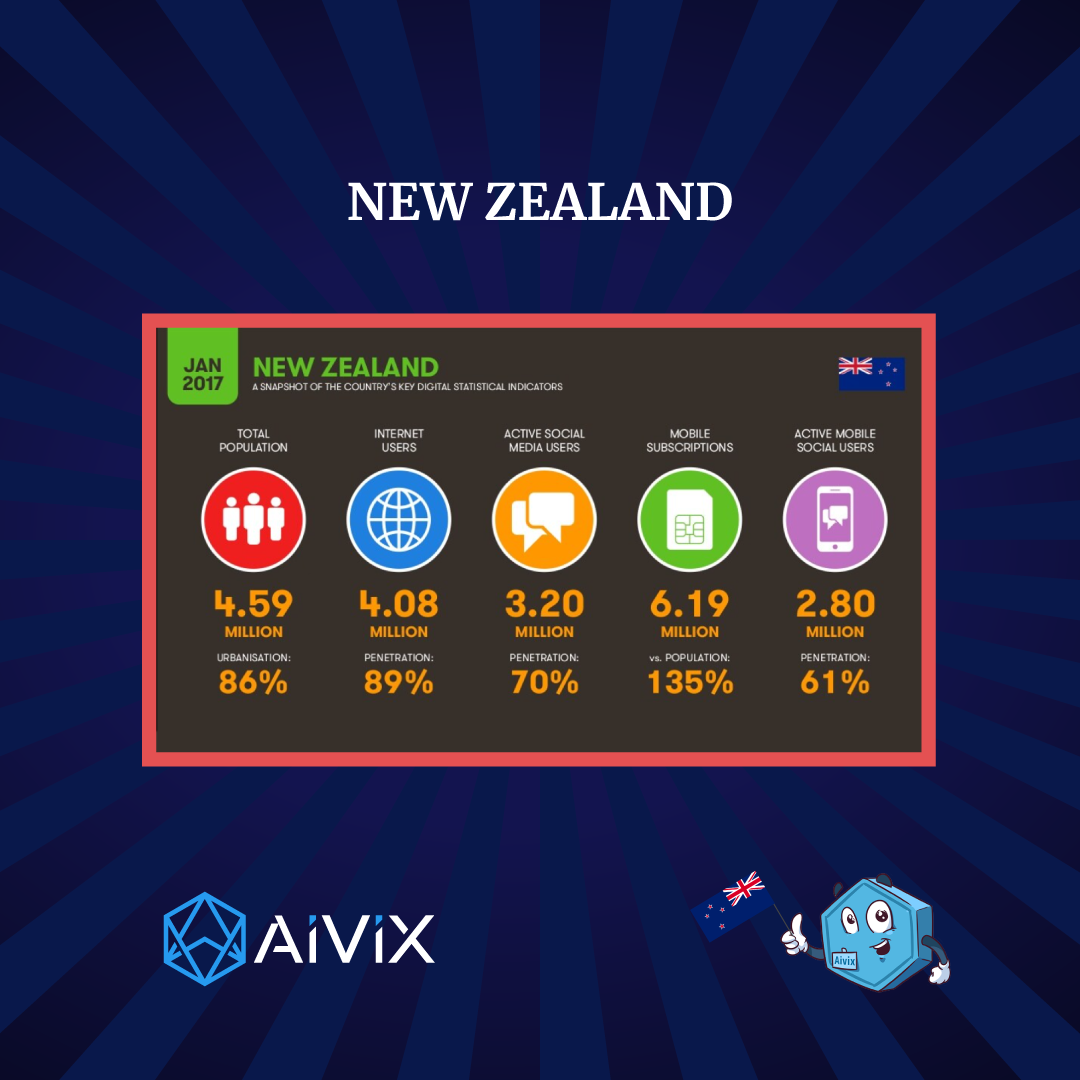
3. Currency in New Zealand
The currency of New Zealand is known as the New Zealand dollar, which is sometimes called Kiwi. The New Zealand dollar is trading under the symbol of NZD or NZ $. Interestingly, polymer bills can pass through a washing machine without any material damage.
Here are some price examples:
- Cappuccino 4-5 NZD
- Big Mac 5.20 NZD
- 3-star motel/ hotel room: 80-250 NZD per night
- Petrol 2 NZD per liter
1 New Zealand dollar/ NZD = 0.68 US dollars
4. Internet in New Zealand
In January 2021, there were 4.55 million Internet users in New Zealand.
In the period from 2020 to 2021, the number of Internet users in New Zealand increased by 84 thousand (+ 1.9%).
The internet pusing rate in New Zealand in January 2021 amounted to 94.0%.
Internet access is widely available. In some parts of Wellington, Kapiti and Christchurch have cable Internet access. The mobile broadband bond 3G is covered by almost the entire population, while 4G is available to the majority. According to Ookla, New Zealand occupies 42nd place in the world with an average load speed of 27.4 Mbit/s.
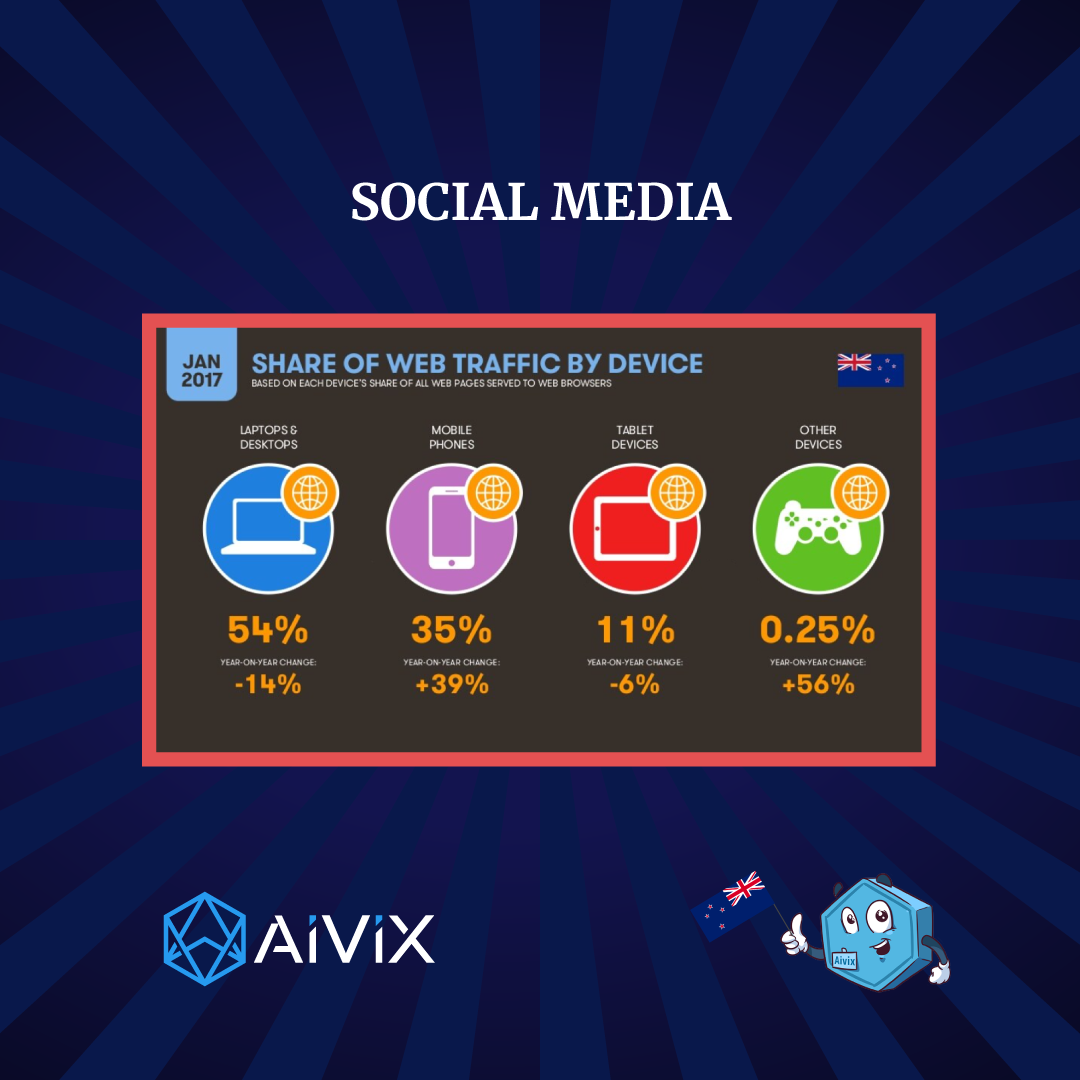
5. Economic development in New Zealand
New Zealand is the 52nd largest national economy in the world on the nominal gross domestic product (GDP) and the 63rd largest in the world at the purchasing power parity (PPP). New Zealand has great GDP for its population in 5 million people, and sources of income are scattered throughout the small island state.
Fertile soil and excellent conditions of cultivation in combination with complex methods of agriculture and advanced agricultural technologies create ideal conditions for pasture, forestry, and garden work. There are about half of all exports of goods on various commodities, and New Zealand is among the Top-5 largest exporters of dairy products in the world.
6. Job in New Zealand
The most highly paid sectors of New Zealand over the past 5 years were the mining industry, electric power industry, gas and water supply, finance, and information technology. In particular, the posts in the field of IT sales, digital architecture, and financial control are regularly considered the most highly paid positions in the country along with doctors. The most low-paid work in New Zealand, compared with the qualifications and experience, is associated with the services sector, while the hotel administrators, waiters, and staff are regularly valued right at the bottom of the scale.
| Category | Average salary | Range |
| Accounting | $65,000 | $48,000-$125,000 |
| Agriculture, fishing and forestry | $55,000 | $40,000-$95,000 |
| Architecture | $75,000 | $50,000-$125,000 |
| Automotive industry | $60,000 | $40,000-$85,000 |
| Banking, finance and insurance | $65,000 | $45,000-$125,000 |
| Construction and road works | $60,000 | $40,000-$135,000 |
| Customer service | $48,000 | $40,000-$65,000 |
| Education | $60,000 | $42,000-$75,000 |
| Engineering | $75,000 | $48,000-$130,000 |
| Public health | $55,000 | $40,000-$85,000 |
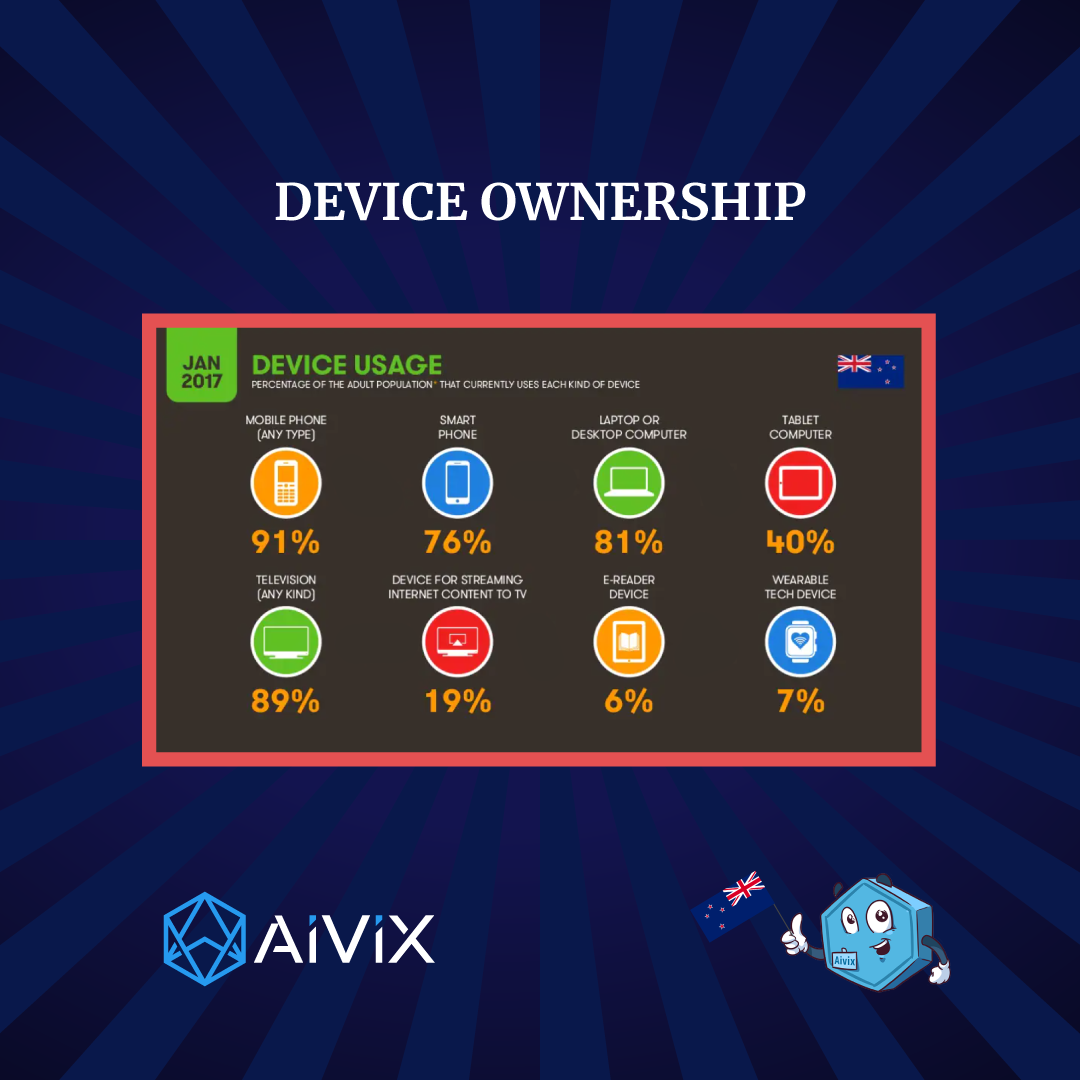
7. Working days and holidays in New Zealand
Festive calendar for 2022 year:
January, 1st – New Year
February, 6 – Waitangi Day
February, 14 – Valentine’s Day
March, 20 – Vernal Equinox
April, 1st – April Fools’ Day
April, 2 – Good Friday
April, 3 – Good Saturday
April, 4 – Easter
April, 5 – Easter Monday
April, 26 – Veteran’s Day
May, 9 – Mother’s Day
June, 7 – Queen’s Birthday
June, 21 – Summer Solstice
September, 5 – Father’s Day
September, 23 – Autumn equinox
October, 25 – Labor Day
October, 31 – Halloween
November, 5 – Guy Fawkes Night
December, 22 – December Soltice
December, 24 – Christmas Eve
December, 25 – Christmas
December, 26 – Boxing Day
December, 27 – Christmas Celebrating
December, 31 – New Year Eve
8. Resident’s mentality of New Zealand
New Zealanders, as a rule, relaxed, positive people who love to work a lot, spend time with friends and family, and enjoy the beautiful country in which they live. New Zealanders – or Kiwi, as they are often called – combine time at work with time to relax. They enjoy to walk in nature, play or watch sports, engage in art and culture, and generally take the maximum pleasure from life. They are friendly and open, but sometimes they may seem a bit discreet and shy.
Maori is the indigenous people of New Zealand. Maori culture is the central part of life here, including food, language, and customs. Even if you live here for a while, it is important that you know, understood, and respect Maori customs and ways to interact with Maori culture.
9. Advertising in New Zealand
In New Zealand, many companies dip in the water of digital advertising but face a number of difficulties in investing in all or most of their budget to this rapidly developing space.
According to the study of the PWC Analytical Group, in the period from 2017 to 2021, Internet advertising in New Zealand will grow by $320 million compared with a radio ad, which should grow only $4 million. It is also predicted that by 2021 the market will reach 1.4 billion NZD. Interestingly, Internet advertising has reached a record level of 1.341 billion NZD in 2020 and increased by 6.6% compared with the previous year. Thus, it is safe to say that the PWC forecast will most likely realize in 2021.
Easy to see how fast New Zealand companies adapt their marketing approach, increasing their expenses for digital technology.
10. Cryptocurrency in New Zealand
The International Tax Agency (IRD) does not recognize cryptocurrency with legitimate money for tax purposes. As a result, the Company is obliged to take it as a form of payment. As if you were a shareholder of a public company, you would have owned bitcoins. Cryptocurrency is difficult to control governments, as they cannot determine who belongs to, due to the nature of their storage system. The rules in this area are still under development; Nevertheless, over time they will become more specific.

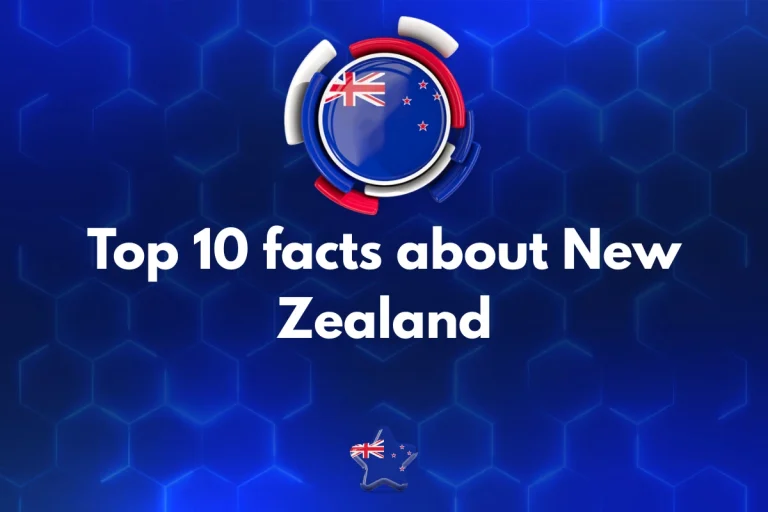
0 Comments